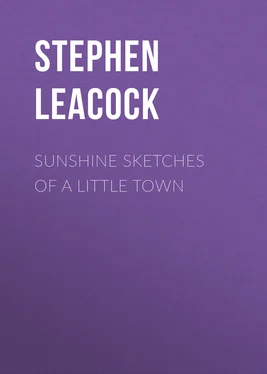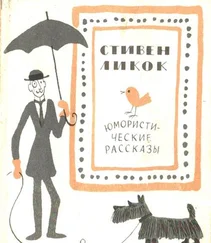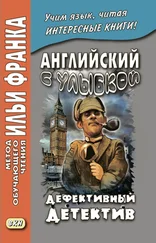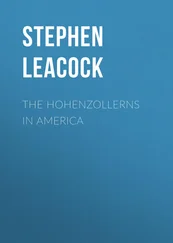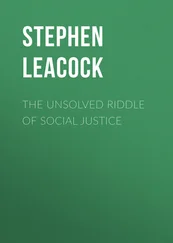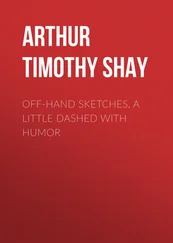Stephen Leacock - Sunshine Sketches of a Little Town
Здесь есть возможность читать онлайн «Stephen Leacock - Sunshine Sketches of a Little Town» — ознакомительный отрывок электронной книги совершенно бесплатно, а после прочтения отрывка купить полную версию. В некоторых случаях можно слушать аудио, скачать через торрент в формате fb2 и присутствует краткое содержание. Жанр: foreign_prose, foreign_antique, на английском языке. Описание произведения, (предисловие) а так же отзывы посетителей доступны на портале библиотеки ЛибКат.
- Название:Sunshine Sketches of a Little Town
- Автор:
- Жанр:
- Год:неизвестен
- ISBN:нет данных
- Рейтинг книги:4 / 5. Голосов: 1
-
Избранное:Добавить в избранное
- Отзывы:
-
Ваша оценка:
- 80
- 1
- 2
- 3
- 4
- 5
Sunshine Sketches of a Little Town: краткое содержание, описание и аннотация
Предлагаем к чтению аннотацию, описание, краткое содержание или предисловие (зависит от того, что написал сам автор книги «Sunshine Sketches of a Little Town»). Если вы не нашли необходимую информацию о книге — напишите в комментариях, мы постараемся отыскать её.
Sunshine Sketches of a Little Town — читать онлайн ознакомительный отрывок
Ниже представлен текст книги, разбитый по страницам. Система сохранения места последней прочитанной страницы, позволяет с удобством читать онлайн бесплатно книгу «Sunshine Sketches of a Little Town», без необходимости каждый раз заново искать на чём Вы остановились. Поставьте закладку, и сможете в любой момент перейти на страницу, на которой закончили чтение.
Интервал:
Закладка:
As you open the door, it sets in violent agitation a coiled spring up above and a bell that almost rings. Inside, there are two shaving chairs of the heavier, or electrocution pattern, with mirrors in front of them and pigeon holes with individual shaving mugs. There must be ever so many of them, fifteen or sixteen. It is the current supposition of each of Jeff's customers that everyone else but himself uses a separate mug. One corner of the shop is partitioned off and bears the sign: HOT AND COLD BATHS, 50 CENTS. There has been no bath inside the partition for twenty years—only old newspapers and a mop. Still, it lends distinction somehow, just as do the faded cardboard signs that hang against the mirror with the legends: TURKISH SHAMPOO, 75 CENTS, and ROMAN MASSAGE, $1.00.
They said commonly in Mariposa that Jeff made money out of the barber shop. He may have, and it may have been that that turned his mind to investment. But it's hard to see how he could. A shave cost five cents, and a hair-cut fifteen (or the two, if you liked, for a quarter), and at that it is hard to see how he could make money, even when he had both chairs going and shaved first in one and then in the other.
You see, in Mariposa, shaving isn't the hurried, perfunctory thing that it is in the city. A shave is looked upon as a form of physical pleasure and lasts anywhere from twenty-five minutes to three-quarters of an hour.
In the morning hours, perhaps, there was a semblance of haste about it, but in the long quiet of the afternoon, as Jeff leaned forward towards the customer, and talked to him in a soft confidential monotone, like a portrait painter, the razor would go slower and slower, and pause and stop, move and pause again, till the shave died away into the mere drowse of conversation.
At such hours, the Mariposa barber shop would become a very Palace of Slumber, and as you waited your turn in one of the wooden arm-chairs beside the wall, what with the quiet of the hour, and the low drone of Jeff's conversation, the buzzing of the flies against the window pane and the measured tick of the clock above the mirror, your head sank dreaming on your breast, and the Mariposa Newspacket rustled unheeded on the floor. It makes one drowsy just to think of it!
The conversation, of course, was the real charm of the place. You see, Jefferson's forte, or specialty, was information. He could tell you more things within the compass of a half-hour's shave than you get in days of laborious research in an encyclopaedia. Where he got it all, I don't know, but I am inclined to think it came more or less out of the newspapers.
In the city, people never read the newspapers, not really, only little bits and scraps of them. But in Mariposa it's different. There they read the whole thing from cover to cover, and they build up on it, in the course of years, a range of acquirement that would put a college president to the blush. Anybody who has ever heard Henry Mullins and Peter Glover talk about the future of China will know just what I mean.
And, of course, the peculiarity of Jeff's conversation was that he could suit it to his man every time. He had a kind of divination about it. There was a certain kind of man that Jeff would size up sideways as he stropped the razor, and in whose ear he would whisper: "I see where Saint Louis has took four straight games off Chicago,"—and so hold him fascinated to the end.
In the same way he would say to Mr. Smith: "I see where it says that this 'Flying Squirl' run a dead heat for the King's Plate."
To a humble intellect like mine he would explain in full the relations of the Keesar to the German Rich Dog.
But first and foremost, Jeff's specialty in the way of conversation was finance and the money market, the huge fortunes that a man with the right kind of head could make.
I've known Jefferson to pause in his shaving with the razor suspended in the air as long as five minutes while he described, with his eye half closed, exactly the kind of a head a man needed in order to make a "haul" or a "clean up." It was evidently simply a matter of the head, and as far as one could judge, Jeff's own was the very type required. I don't know just at what time or how Jefferson first began his speculative enterprises. It was probably in him from the start. There is no doubt that the very idea of such things as Traction Stock and Amalgamated Asbestos went to his head: and whenever he spoke of Mr. Carnegie and Mr. Rockefeller, the yearning tone of his voice made it as soft as lathered soap.
I suppose the most rudimentary form of his speculation was the hens. That was years ago. He kept them out at the back of his house,—which itself stood up a grass plot behind and beyond the barber shop,—and in the old days Jeff would say, with a certain note of pride in his voice, that The Woman had sold as many as two dozen eggs in a day to the summer visitors.
But what with reading about Amalgamated Asbestos and Consolidated Copper and all that, the hens began to seem pretty small business, and, in any case, the idea of two dozen eggs at a cent apiece almost makes one blush. I suppose a good many of us have felt just as Jeff did about our poor little earnings. Anyway, I remember Jeff telling me one day that he could take the whole lot of the hens and sell them off and crack the money into Chicago wheat on margin and turn it over in twenty-four hours. He did it too. Only somehow when it was turned over it came upside down on top of the hens.
After that the hen house stood empty and The Woman had to throw away chicken feed every day, at a dead loss of perhaps a shave and a half. But it made no difference to Jeff, for his mind had floated away already on the possibilities of what he called "displacement" mining on the Yukon.
So you can understand that when the mining boom struck Mariposa, Jefferson Thorpe was in it right from the very start. Why, no wonder; it seemed like the finger of Providence. Here was this great silver country spread out to north of us, where people had thought there was only a wilderness. And right at our very doors! You could see, as I saw, the night express going north every evening; for all one knew Rockefeller or Carnegie or anyone might be on it! Here was the wealth of Calcutta, as the Mariposa Newspacket put it, poured out at our very feet.
So no wonder the town went wild! All day in the street you could hear men talking of veins, and smelters and dips and deposits and faults,—the town hummed with it like a geology class on examination day. And there were men about the hotels with mining outfits and theodolites and dunnage bags, and at Smith's bar they would hand chunks of rock up and down, some of which would run as high as ten drinks to the pound.
The fever just caught the town and ran through it! Within a fortnight they put a partition down Robertson's Coal and Wood Office and opened the Mariposa Mining Exchange, and just about every man on the Main Street started buying scrip. Then presently young Fizzlechip, who had been teller in Mullins's Bank and that everybody had thought a worthless jackass before, came back from the Cobalt country with a fortune, and loafed round in the Mariposa House in English khaki and a horizontal hat, drunk all the time, and everybody holding him up as an example of what it was possible to do if you tried.
They all went in. Jim Eliot mortgaged the inside of the drug store and jammed it into Twin Tamagami. Pete Glover at the hardware store bought Nippewa stock at thirteen cents and sold it to his brother at seventeen and bought it back in less than a week at nineteen. They didn't care! They took a chance. Judge Pepperleigh put the rest of his wife's money into Temiskaming Common, and Lawyer Macartney got the fever, too, and put every cent that his sister possessed into Tulip Preferred.
And even when young Fizzlechip shot himself in the back room of the Mariposa House, Mr. Gingham buried him in a casket with silver handles and it was felt that there was a Monte Carlo touch about the whole thing.
Читать дальшеИнтервал:
Закладка:
Похожие книги на «Sunshine Sketches of a Little Town»
Представляем Вашему вниманию похожие книги на «Sunshine Sketches of a Little Town» списком для выбора. Мы отобрали схожую по названию и смыслу литературу в надежде предоставить читателям больше вариантов отыскать новые, интересные, ещё непрочитанные произведения.
Обсуждение, отзывы о книге «Sunshine Sketches of a Little Town» и просто собственные мнения читателей. Оставьте ваши комментарии, напишите, что Вы думаете о произведении, его смысле или главных героях. Укажите что конкретно понравилось, а что нет, и почему Вы так считаете.
